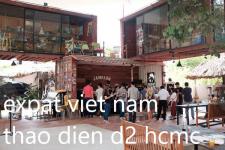Type Of Company In Vietnam
- 11/06/2021

Most industries do not require a minimum capital investment. This means you can adjust your starting capital to suit your plan. Most business classifications are open to 100% foreign investment and ownership, and do not require special approval or licenses.
#1. Limited Liability Company (LLC)
LLC is the most common legal entity type in Vietnam and an excellent choice for small and medium-sized enterprises (SMEs). Single investors can take advantage of its simple corporate structure, which requires one founder only. LLC is not permissible to issue public shares and be publicly listed on the Vietnamese stock exchange.
#2. Joint-Stock Company (JSC)
JSC is recommended for medium and large-sized businesses as its corporate structure is complicated and requires a minimum of three founders. Furthermore, its registration process is often delayed due to more demanding requirements. This kind of a shareholding company allows its owners to issue shares and be listed on the public stock exchange.
#3. Representative Office (RO)
RO is perfect for foreigners wanting to observe the local market and gain market presence before expanding. An RO is not allowed to conduct business activities that generate income and behave like an ordinary company. It is possible for the RO’s head office to sign, adjust/supplement contracts on behalf of foreign company, if s/he is authorised by its legal representative, with the power of attorney being present.
Types of Company in Vietnam: Vietnam offers some choices for setting up a business in the country. The principal types of business license are: business cooperation; joint venture; company with 100% foreign owned capital; branch of an overseas company; and representative office of an overseas company.
New Laws on Investment and Enterprise
These come into effect on 1 July 2015 and may lead to changes to certain of the issues dealt with below.
Forms of Business
- A foreign entity may establish its presence in Vietnam as a limited-liability company with one or more members,
- A joint-stock company, a partnership, a branch, a business cooperation contract or a representative office.
- Foreign investors may also buy an interest in an existing domestic enterprise, subject in some cases to ownership limitations which vary depending on the industry sector.
The choice of investment vehicle will depend on factors such as the number of investors, industry, and size of the project and whether there is any intention to list.
1. Limited-liability Company
A limited-liability company is a legal entity established by its members through capital contributions to the company. The capital contribution of each member is treated as equity (charter capital). The members of a limited-liability company are liable for the financial obligations of the limited-liability company to the extent of their capital contributions.
The management structure of a limited-liability company would normally consist of the members’ council, the chairman of the members’ council, the general director and a controller (or board of supervisors where the limited-liability company has more than 11 members).
A limited-liability company established by foreign investors may take the form of either:
A 100% foreign-owned enterprise
(Where all members are foreign investors); or A foreign-invested joint-venture enterprise between foreign investors and at least one domestic investor.
2. Joint-stock Company
A joint-stock company is a limited liability legal entity established through a subscription for shares in the company.
Under Vietnamese law, this is the only type of company that can issue shares. The charter capital of a joint-stock company is divided into shares and each founding shareholder holds shares corresponding to the amount of capital the shareholder has contributed to the company.
A joint-stock company is required to have at least three shareholders. There is no limit on the maximum number of shareholders in such companies.
The governance of a joint-stock Company includes a general Meeting of shareholders, the board of Management, the chairman of the board Of management, the general director And a board of supervisors (where the
Joint stock company has more than 11 individual shareholders, or if a corporate shareholder holds more than 50% of the shares of the joint-stock company).
A joint-stock company may either be 100% foreign-owned or may take the form of a joint venture between both foreign and domestic investors.
3. Partnership
A partnership may be established between two individual general partners. The general partner has unlimited liability for the operations of the partnership.
4. Branches
This is not a common form of foreign direct investment and is only permitted in a few sectors. Branches of foreign companies are different from representative offices in that a branch is permitted to conduct commercial activities in Vietnam.
5. Representative Offices
Foreign companies with business relations or investment projects in Vietnam may apply to open representative offices in Vietnam.
A representative office is not an independent legal entity and may not conduct direct commercial or revenue-generating activities (i.e., the execution of contracts, receipt of funds, sale or purchase of goods, or provision of services).
However, a representative office is permitted to:
- Act as a liaison office to observe the business environment;
- Search for trade and/or investment opportunities and partners;
- Supervise and assist with the implementation of contracts entered into between its head office and Vietnamese partners;
- Act on behalf of its head office to supervise and direct the implementation of projects in Vietnam.
Thus representative offices can provide a wide range of ancillary support to
Their head offices overseas. This is a very common form of presence in Vietnam for foreign companies, particularly those in the first stage of a market entry strategy.
6. Business Cooperation Contracts (‘BCC’)
A BCC is a cooperation agreement between foreign investors and at least one Vietnamese partner in order to carry out specific business activities.
This form of investment does not constitute the creation of a new legal entity. The investors in a BCC generally Share the revenues and/or products arising from a BCC and have unlimited liability for the debts of the BCC.
7. Public and Private Partnership Contracts
A Public and Private Partnership (‘PPP’) contract is an investment form carried out based on a contract between the government authorities and project companies for infrastructure projects and public services.
PPP Contracts includes Build-Operate-
Transfer (‘BOT’), Build-Transfer (‘BT’), Build-Transfer-Operate (‘BTO’), Build-Own-Operate (‘BOO’), Build-Transfer-Lease (‘BTL’), Build -Lease-Transfer (‘BLT’) and Operate-Manage (O&M) Contracts.
Both public and private investors are encouraged to participate in PPP Contracts. The rights and obligations of the foreign investor will be regulated by the signed PPP contracts and the applicable regulations governing such contracts. Investment sectors include:
Transportation infrastructures and relevant services;
Lighting systems, clean water supply systems, water drainage systems, water/waste collection and treatment systems, social/resettlement houses, cemeteries;
Power plants and power transmission lines;
Infrastructures for healthcare, educational and training, cultural, sport and relevant services, offices for government authorities;
Infrastructure for commerce, science and technology, hydrometeorology, economic zone, industrial zone, high-tech zone, centralized information technology zone, information technology application;
Infrastructure for agriculture and rural development, services for enhancing the correlation of agricultural production with processing and consumption of agricultural products; and
Other sectors according to the Prime Minister’s decisions.
→ Setting up a Business in Viet Nam
In order to set up a limited liability Company, a joint stock company, a partnership or enter into a business cooperation contract with one or more Vietnamese partners, the foreign investors must obtain an investment registration certificate from the licensing authorities, which may be either (i) the provincial people’s committee (for projects located outside of industrial zones, export processing zones, high- tech zones and economic zones), or (ii) the provincial industrial zone management authority or economic zone management authority (for projects located in industrial zones, export processing zones, high-tech zones and economic zones).
After the issuance of the investment registration certificate, the foreign investors must conduct procedures with the licensing authorities to obtain a business registration certificate. Under the regulations, the licensing process should take around 18 working days. In practice it usually takes longer.
Investment in “conditional” sector activities is subject to the more cumbersome appraisal (as opposed to registration) procedures. These require, inter alia, the license application to be reviewed also at the central government ministry level in Hanoi.
Approval for the establishment of a representative office of a foreign
Company is granted in the form of a license issued by the provincial people’s committee. Procedures for setting up a representative office are quite simple in comparison with those for a company and it normally takes 2 - 4 weeks to obtain a representative office license from the date of submission of a complete application dossier.
For PPP projects, foreign investors must sign PPP contracts with an authorised State body, and then establish a project company in the form of a limited liability company or a joint stock company.
-----------------------------------------------------------------------
FAQs
How many type of company in Viet Nam ?
---------
1. Private enterprise · 2. Limited liability company · 3. Single-member limited liability company · 4. Joint stock company · 5. Partnership.
Why chose Limited Liability Company (LLC) ?
Limited Liability Company (LLC) LLC is the most common legal entity type in Vietnam and an excellent choice for small and medium-sized enterprises (SMEs). Single investors can take advantage of its simple corporate structure, which requires one founder only. LLC is not permissible to issue public shares and be publicly listed on the Vietnamese stock exchange.
Forms of doing business in Vietnam ?
----
Forms of doing business in Vietnam · 1.The Limited Liability Company (LLC) · 2.The Joint Stock Company (JSC) · 3. Partnership Company











0 comment